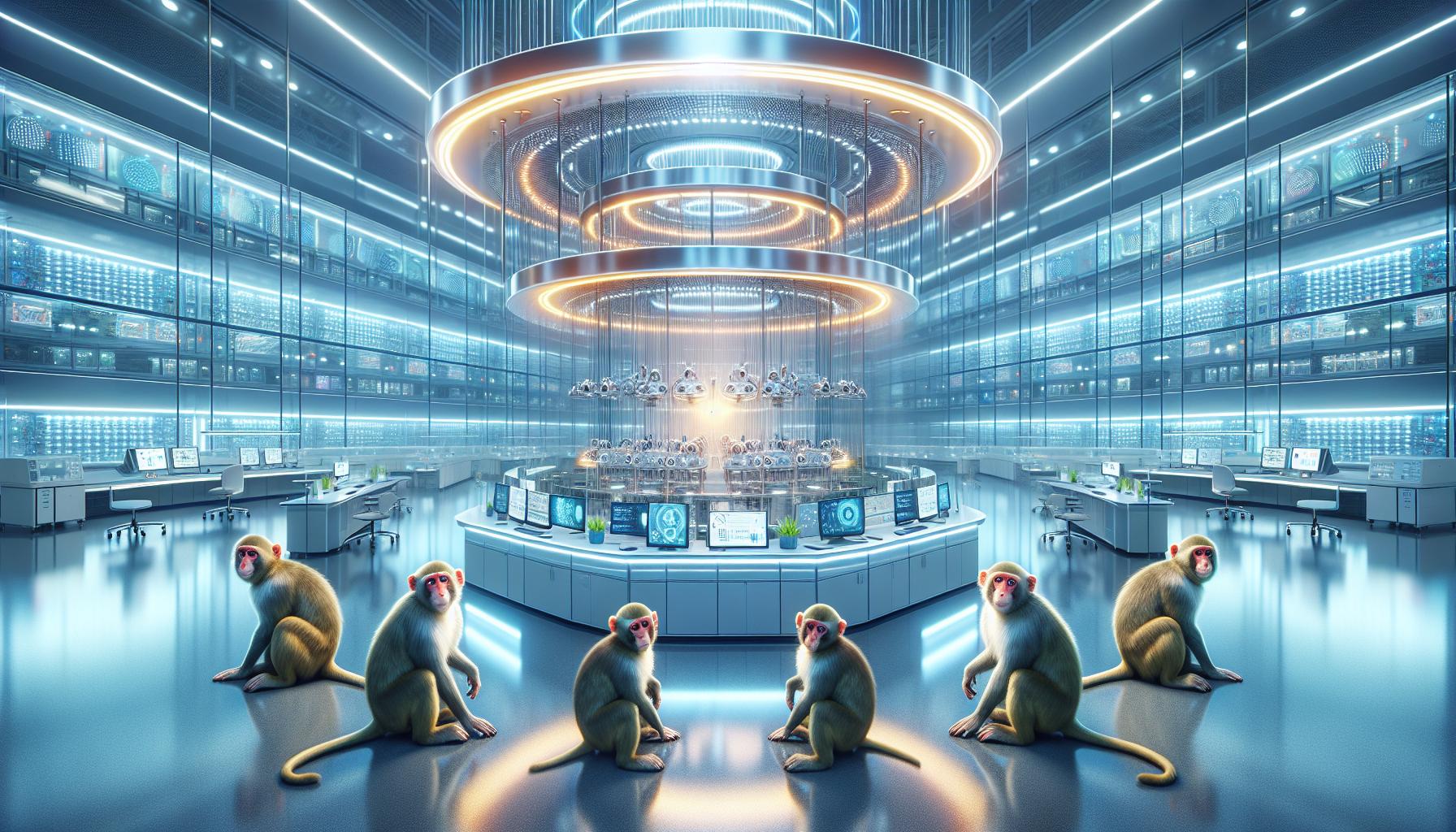The Success and Challenges of Cloning Mammalian Animals
In 1996, researchers achieved a groundbreaking feat when they successfully cloned Dolly the Sheep using a technology called somatic cell cloning or somatic cell nuclear transfer. Since then, this technology has been tested on 20 other mammalian species, with varying levels of success. However, cloned animals often suffer from organ and muscle damage, which significantly reduces their life expectancy. Among the different species, cows have shown the best chances of survival, while primates have had the lowest success rates.
Breakthrough or Not? Experts Weigh in on Cloned Rhesus Monkey
In early 2018, the scientific community was astonished when two macaque monkeys, named Zhong Zhong and Hua Hua, were successfully cloned using the somatic cell nuclear transfer technique. This breakthrough was achieved at the Institute of Neuroscience of the Chinese Academy of Sciences in Shanghai. Now, the same institute has presented another success story – the cloning of a healthy and happy rhesus monkey, who is already 2 years old. While some experts consider this a major breakthrough, others remain skeptical of its broader applicability in the scientific community.
Understanding the Science and Difficulty of Cloning
Cloning involves creating an exact genetic replica of a complex lifeform, which poses significant challenges to the clone’s survival. All living organisms, including animals, are composed of somatic cells, which are any cells that are not reproductive cells like sperm and egg cells. In somatic cell cloning, the nucleus of a somatic cell, such as a nerve cell, is inserted into an egg cell that has had its own nucleus removed. This process allows the egg cell to reset the somatic cell nucleus, resulting in the development of an embryo. However, the efficiency rate of cloning is low, and the cloned animals often have health issues and shorter lifespans.
The Unique Challenges of Cloning Primates
Cloning primates, including monkeys, presents specific challenges. In the recent study, out of 484 implanted embryos, only one monkey was successfully born alive. It is difficult to determine whether this success was due to the new technique or mere chance. According to experts, primate cloning is not fundamentally more difficult than cloning other mammals, but the limited experience and few institutes capable of conducting primate cloning experiments contribute to the overall difficulty. Additionally, the complexities of housing and maintaining primates for research purposes also slow down progress compared to experiments conducted with mice.
The Potential of Cloning Monkeys for Medical Research
Cloning monkeys holds immense interest for researchers due to the biological similarities between non-human primates and humans. Scientists hope to use monkeys more extensively in medical research, particularly in finding treatments for diseases like Alzheimer’s and Parkinson’s. By conducting experiments on groups of genetically cloned monkeys and comparing the results to non-cloned monkeys, researchers believe they can obtain more accurate insights that can be translated effectively to human medical treatments. While the ethics of cloning monkeys raise concerns, there is potential for developing gene therapies for various conditions such as visual impairment, deafness, heart disease, and metabolic disorders. However, the ultimate success of cloning monkeys in finding effective treatments remains uncertain.
Analyst comment
Positive:
– The successful cloning of monkeys using somatic cell nuclear transfer technique is seen as a major breakthrough in the scientific community.
– Cloning monkeys holds potential for medical research with the hope of finding treatments for diseases like Alzheimer’s and Parkinson’s.
Negative:
– Cloned animals often suffer from organ and muscle damage, reducing their life expectancy.
– Cloning primates, including monkeys, is challenging and has a low success rate.
– Cloned animals often have health issues and shorter lifespans.
Neutral:
– Some experts remain skeptical about the broader applicability of monkey cloning in the scientific community.
– The ultimate success of cloning monkeys in finding effective treatments for diseases remains uncertain.
As an analyst, the market for cloning technology is likely to see continued interest and investment, especially in the medical and biotechnology sectors. However, the challenges and uncertainties associated with the cloning process may impede its widespread implementation in the near term.













